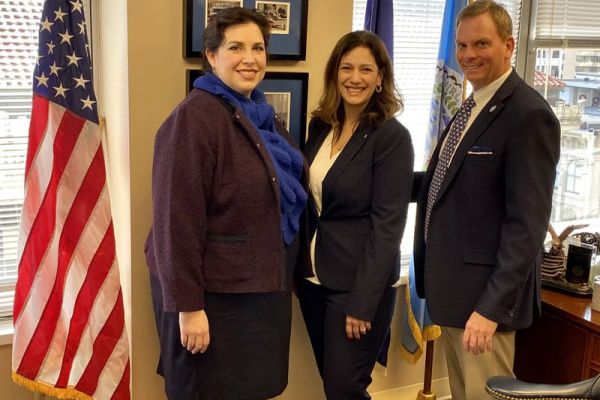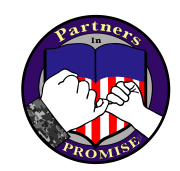
Military children represented by new seats on education council
| In the News, Partners in PROMISE in the News
By ALISON JOHNSON VIRGINIAN-PILOT CORRESPONDENT |JUN 11, 2020 | 10:27 AM

Between kindergarten and 12th grade, most military children move six to nine times. The complicated job of handling enrollment, class placement, credit transfers and other logistics at new schools often falls to military spouses.
Yet, until now, those spouses haven’t had a seat on the Virginia Council on the Interstate Compact on Educational Opportunity for Military Children, the organization that works to make such transitions as smooth and fair as possible.
Led by the advocacy of Michelle Norman, a Navy wife in Virginia Beach, the General Assembly recently voted to add two seats: one for a military spouse, and one for a military parent who may or may not be married. That legislation takes effect this summer.
“It just makes sense, because they’re the people who best understand the challenges,” Norman says. “They will bring in a vast amount of knowledge and ideas on real-world solutions. This is the perfect time to amplify their voices.”
Norman, a longtime leader for military families with special-needs children, is married to Cassidy Norman, Commanding Officer of the USS Mount Whitney, and has two children, Marisa, 16, and Chace, 10. Marisa has cerebral palsy and multiple other disabilities.

The Virginia Council, created by the General Assembly in 2009, is part of a nationwide network of similar groups that tackle challenges such as coordinating graduation requirements, continuing special-education services and facilitating rapid record transfers.
Members have included two legislators, five citizens, a representative from a military installation, a school superintendent, and a governor’s appointee. The state has set a precedent by adding a military spouse, Norman notes.
“I’m proud that we’re at the forefront,” she says. “Now this is something we want to start pushing in every state.”
Republican Sen. Bill DeSteph of Virginia Beach, a Navy veteran who has been deployed himself, sponsored legislation for Norman and later partnered with Republican Del. Jason Miyares and Democrat Sen. Lionell Spruill on its passage. Norman was “a tireless supporter,” DeSteph says. “Her knowledge, enthusiasm and tenacity are incredible.”
Norman has had to battle for Marisa since her birth at just 27 weeks, when she weighed 2 pounds, 3 ounces and suffered a brain bleed. Despite hearing loss, nearsightedness, attention deficit disorder, anxiety and several learning disabilities, Marisa is flourishing as a freshman at a small private school after struggling to get needed support in public schools.
Norman is co-founder of Parents for Free Appropriate Public Education, a local support group that also raises special-education issues to the General Assembly. In January, she and three other military mothers created Partners in PROMISE, a national resource for anyone in the Exceptional Family Member Program that provides medical and educational services.
After testifying on Capitol Hill, Norman is backing initiatives to improve EFMP, such as providing better access to special-education attorneys and advocates. Another goal is to collect nationwide data on families’ experiences and raise awareness of everyone’s legal rights.
“Our children should never face obstacles that keep them from succeeding,” she says. “I’m determined to keep the momentum going.”





Leave a Reply